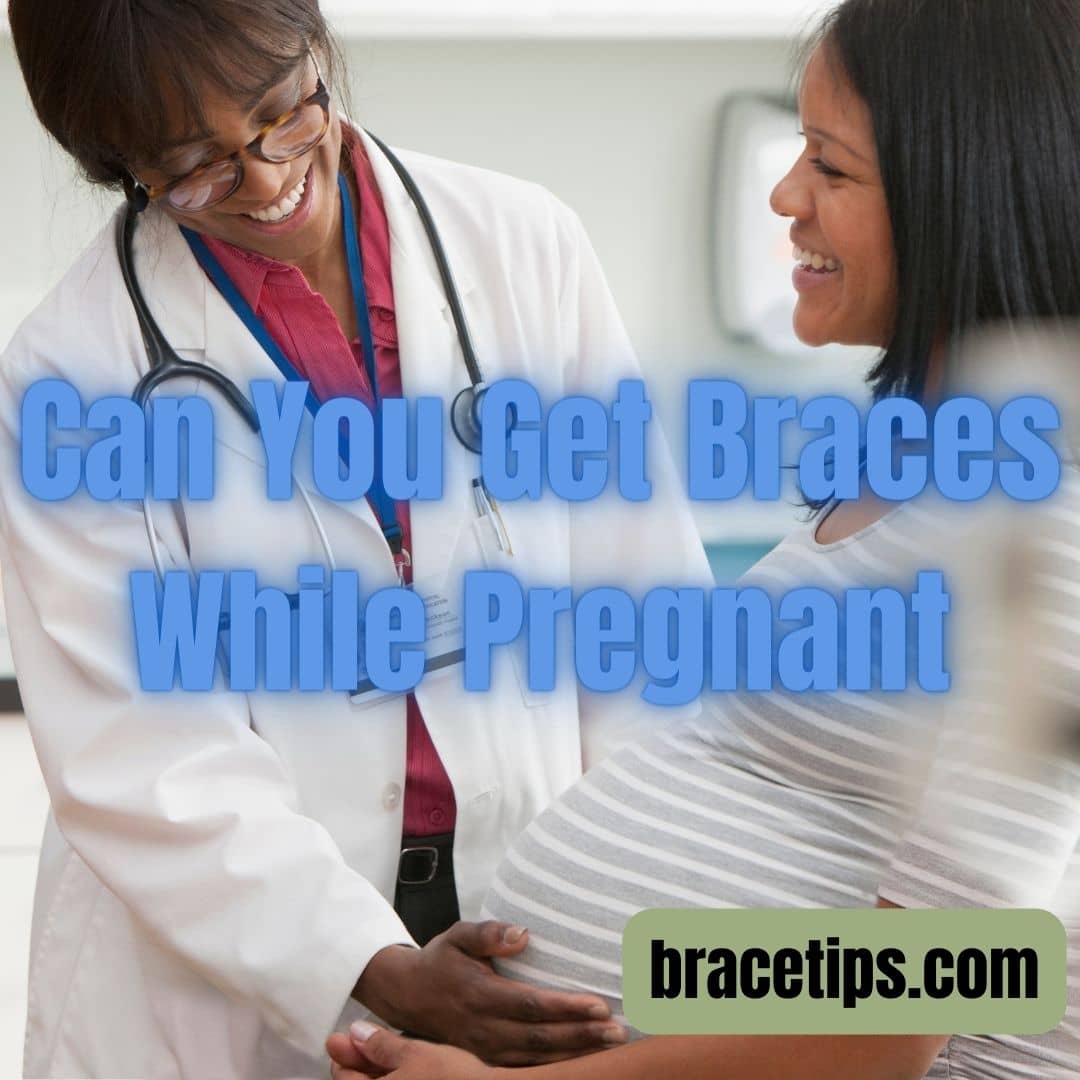Can You Get Braces While Pregnant
Pregnancy brings about numerous changes, and for those considering orthodontic treatment like braces, it’s natural to wonder about the safety and efficacy of such procedures during this crucial time. Let’s delve into the nuances of whether getting braces during pregnancy is a viable option and explore the associated benefits, challenges, and considerations. Often, questions arise regarding dental care, particularly concerning orthodontic treatments like braces. Is it safe to get braces during pregnancy? Can you get braces while pregnant it has no problem. How does pregnancy affect orthodontic treatment? This comprehensive guide addresses these queries and provides insights into wearing braces while pregnant. we’ll delve into the nuances of orthodontic treatment, specifically the feasibility and safety of getting braces during pregnancy. We’ll explore the potential risks, considerations, and expert opinions to provide expecting mothers with a well-informed perspective.
Is It Safe to Get Braces During Pregnancy?
Pregnancy is a time marked by caution and care, and when it comes to orthodontic treatment, safety is a primary concern. Generally, it’s safe to get braces during pregnancy, but certain considerations must be taken into account. Orthodontic procedures involving braces primarily consist of non-invasive adjustments, which shouldn’t pose significant risks to the mother or the baby. However, consulting both an obstetrician and an orthodontist is crucial to assess individual circumstances and ensure the safety of any dental procedures during pregnancy. The safety of dental procedures, including getting braces, is a concern for expectant mothers. According to dental and obstetric professionals, it is generally safe to undergo orthodontic treatment, including braces, during pregnancy. However, several factors need consideration, such as the stage of pregnancy, potential risks, and the necessity of the procedure.
Understanding Orthodontic Treatment
Before diving into the specific concerns related to pregnancy and braces, it’s crucial to understand orthodontic treatment. Braces are orthodontic devices used to correct misaligned teeth or jaws. They consist of various components such as brackets, wires, and bands, and work by applying continuous pressure to gradually shift teeth into the desired position.
Can You Get Braces While Pregnant?
Safety Considerations
One of the primary concerns expecting mothers have regarding braces during pregnancy is the safety aspect. Orthodontic treatments typically involve X-rays, dental procedures, and the use of materials like dental adhesives and metals. These factors raise questions about potential risks to the developing fetus.
Expert Insights
According to many dental and orthodontic professionals, getting braces during pregnancy is generally safe, especially for routine adjustments and non-invasive procedures. However, elective procedures or major orthodontic work may be postponed until after childbirth to minimize any potential risks.
Impact of Hormonal Changes
Pregnancy triggers hormonal changes that can affect the gums and oral health. Some expecting mothers might experience gum inflammation or increased sensitivity. These changes can impact the timing and effectiveness of orthodontic treatment, requiring closer monitoring and adjustments by the orthodontist.
Anesthesia and Medications
Another consideration is the use of anesthesia or medications during orthodontic procedures. Certain medications and anesthesia might pose risks during pregnancy. Orthodontists and dentists typically avoid using them or opt for safer alternatives when treating pregnant patients.
Benefits of Getting Braces During Pregnancy
Orthodontic Adjustments with Ease
Pregnancy often leads to changes in dental health, making it an opportune time to address alignment issues. The relaxed state of ligaments and increased blood flow might facilitate orthodontic adjustments, potentially reducing discomfort during the treatment. Addressing orthodontic issues can prevent potential dental complications later.
Long-term Oral Health
Investing in braces during pregnancy could contribute to better long-term oral health, addressing issues that might otherwise exacerbate without treatment. Straightening teeth can enhance oral health, making it easier to maintain proper dental hygiene during pregnancy, reducing the risk of gum disease or decay.
Importance of Oral Health During Pregnancy
- Discuss the significance of maintaining good oral hygiene during pregnancy.
- Explain the impact of hormonal changes on dental health.
- Highlight common dental issues experienced during pregnancy.
Safety Concerns in Dental Procedures During Pregnancy
- Address concerns about receiving dental treatments during pregnancy.
- Discuss the safety of various dental procedures, including routine check-ups, cleanings, and treatments.
- Mention precautions and guidelines recommended by dental professionals for pregnant women.
Braces and Orthodontic Treatments During Pregnancy
- Discuss the possibility of getting braces while pregnant.
- Explain the considerations and factors involved in orthodontic treatments during pregnancy.
- Highlight the potential challenges or risks associated with getting braces while pregnant.
Consultation with Dental Professionals
- Emphasize the importance of consulting an orthodontist or dentist during pregnancy.
- Discuss the evaluation process and how dental professionals assess the feasibility of orthodontic treatments for pregnant women.
- Explain the customized approach to dental care considering the individual’s pregnancy status.
Downsides of Getting Braces During Pregnancy
Potential Discomfort
The hormonal changes and physical discomforts associated with pregnancy might amplify any discomfort from braces. However, this varies among individuals and can often be managed with appropriate care. Increased hormonal levels during pregnancy can impact oral health, potentially leading to issues like gum inflammation or sensitivity.
Oral Hygiene Challenges
Maintaining optimal oral hygiene can be challenging during pregnancy, and wearing braces adds an extra layer of complexity. Diligent oral care routines become paramount to prevent decay or other issues. Additionally, discomfort associated with braces might exacerbate pregnancy-related discomfort.
Straightening Challenges Whilst Pregnant
Orthodontic treatments, including braces, might take longer to yield results during pregnancy due to the body’s changes. The shifting teeth may respond differently, affecting the overall treatment duration. Shifting hormones might affect the movement of teeth, making it challenging to achieve desired results. Orthodontists might need to adjust treatment plans accordingly.
Braces Decay Whilst Pregnant
Pregnancy-related dietary changes and altered oral hygiene habits can increase the risk of decay around braces. Regular dental check-ups and stringent oral hygiene practices are essential to mitigate this risk. Especially during pregnancy when hormonal changes increase the risk of dental issues. Proper brushing and flossing become even more essential to prevent decay around braces brackets.
Tips For Wearing Braces While Pregnant
Maintain a Strict Oral Hygiene Regimen
Regular brushing, flossing, and using orthodontic-friendly cleaning aids are vital to prevent decay and maintain dental health. These include regular dental check-ups, maintaining impeccable oral hygiene, consuming a balanced diet, staying hydrated, and discussing concerns with both obstetricians and orthodontists.
Healthy Diet Choices
Opt for nutritious, braces-friendly foods and limit sugary or sticky substances to reduce the risk of decay and complications. Benefits, challenges, and considerations regarding getting braces while pregnant, empowering women to navigate this aspect of their health with confidence and knowledge.
Why It’s Worth Getting Braces While Pregnant?
Investing in orthodontic treatment during pregnancy can contribute to improved oral health, potentially easing dental issues post-pregnancy. Addressing alignment concerns early can prevent future complications and contribute to overall well-being. The long-term benefits of orthodontic treatment often outweigh the temporary difficulties faced during pregnancy. Correcting dental issues can improve oral health, confidence, and overall well-being, making it a worthwhile consideration for expectant mothers.
Will Braces be More Painful While I’m Pregnant?
The discomfort associated with braces varies from person to person. Pregnancy might amplify sensitivity, but pain management techniques recommended by your orthodontist can help alleviate discomfort. Pregnancy might heighten sensitivity, potentially making the experience more uncomfortable. However, orthodontists can suggest pain management techniques and adjustments to alleviate discomfort.
FAQ Section
Q: Is it safe to get braces during pregnancy?
A: Generally, orthodontic treatment, including braces, is considered safe during pregnancy, but it’s crucial to consult both an orthodontist and obstetrician.
Q: Are there benefits to getting braces during pregnancy?
A: Yes, correcting orthodontic issues can improve oral health and make it easier to maintain dental hygiene during pregnancy.
Q: What are the downsides of wearing braces while pregnant?
A: Hormonal changes during pregnancy can impact oral health, potentially leading to issues like gum inflammation. Discomfort from braces might also add to pregnancy-related discomfort.
Q: How can I manage wearing braces during pregnancy?
A: Regular dental check-ups, impeccable oral hygiene, a balanced diet, hydration, and open communication with healthcare providers are key strategies.
Q: Will braces be more painful during pregnancy?
A: Sensitivity during pregnancy might intensify discomfort associated with braces, but orthodontists can suggest pain management techniques and adjustments to help alleviate it.
Q: Are there specific trimesters that are safer for getting braces during pregnancy?
A: Generally, the second trimester is considered the safest for any non-emergency dental procedures, including orthodontic treatments. This period is when the risk to the developing fetus is comparatively lower.
Q: Can pregnancy affect the progress of orthodontic treatment?
A: Yes, hormonal changes during pregnancy can impact the gums and teeth, affecting the progress of orthodontic treatment. Close monitoring and adjustments by the orthodontist may be necessary.
Q: What precautions should pregnant women take if they’re considering braces?
A: Expecting mothers should consult both their obstetrician and orthodontist before proceeding with any orthodontic treatment. Additionally, maintaining good oral hygiene and regular dental check-ups are essential during pregnancy.
Conclusion
Ultimately, the decision to get braces during pregnancy should be made in consultation with healthcare professionals, weighing the potential benefits against the challenges. While it’s generally safe, individual considerations and proper oral hygiene practices are crucial to ensure a healthy dental journey during this unique phase of life. It’s essential to prioritize oral health. Understanding the potential benefits, challenges, and necessary precautions allows expectant mothers to make informed choices. Consulting both dental and obstetric professionals helps ensure the safety and well-being of both the mother and the baby. As with any medical decision during pregnancy, the ultimate goal is to prioritize the health and safety of both the mother and the baby. By making informed choices and seeking professional advice, expecting mothers can navigate orthodontic treatments with confidence and care during this special time.

